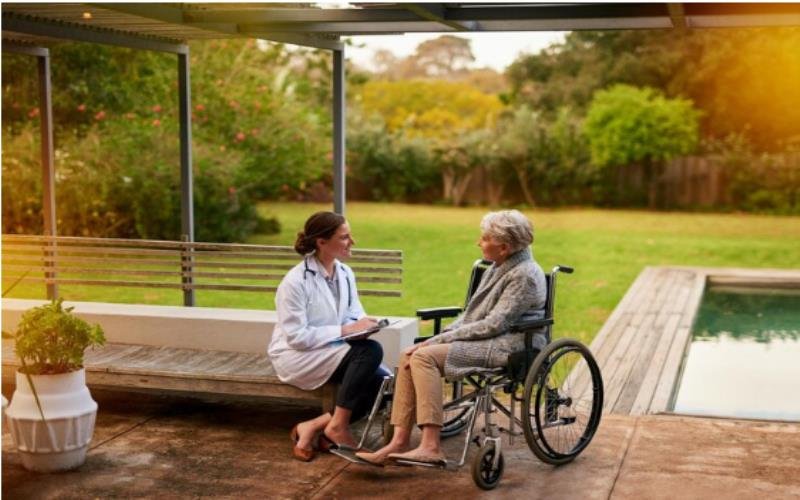Medication-assisted treatment (MAT) is a comprehensive approach to treating substance use disorders, combining medications with counseling and behavioral therapies. This integrated treatment method addresses both the physiological and psychological aspects of addiction, aiming to improve recovery outcomes and support long-term sobriety. As we delve into the role of MAT in alcohol and drug rehab, we will explore how it functions, its benefits, and its impact on recovery.
Understanding Medication-Assisted Treatment (MAT)
MAT involves the use of FDA-approved medications to treat substance use disorders, particularly opioid and alcohol dependence. These medications work by normalizing brain chemistry, blocking the euphoric effects of alcohol and opioids, relieving physiological cravings, and stabilizing body functions without the adverse effects of the abused drug. Common medications used in MAT include methadone, buprenorphine, naltrexone for opioid addiction, and disulfiram, acamprosate, and naltrexone for alcohol dependence. Each medication is carefully chosen based on the individual’s needs and medical history. The primary goal of MAT is to help patients achieve and maintain abstinence, reduce the risk of overdose, and improve overall quality of life. By managing withdrawal symptoms and reducing cravings, MAT allows individuals to focus on the psychological and behavioral aspects of their recovery.
Benefits of MAT in Alcohol and Drug Rehab
MAT offers numerous benefits for individuals undergoing alcohol and drug rehab. One of the most significant advantages is its ability to reduce the risk of relapse. Withdrawal symptoms and cravings are substantial triggers for relapse, and MAT effectively mitigates these challenges, allowing patients to maintain their sobriety. Additionally, MAT has been shown to decrease the incidence of infectious diseases such as HIV and hepatitis C by reducing risky behaviors associated with substance use. Another crucial benefit of MAT is its role in improving retention in treatment programs. Individuals receiving MAT are likelier to stay engaged in their treatment plans, attend counseling sessions, and adhere to their recovery goals. This increased retention is associated with better long-term outcomes, as continuous engagement in treatment is a critical factor in achieving sustained recovery.
The Integration of Counseling and Behavioral Therapies
While medications are vital to MAT, integrating counseling and behavioral therapies is equally essential. Counseling provides individuals with the tools and strategies needed to address the underlying psychological and behavioral aspects of addiction. Cognitive-behavioral therapy (CBT), motivational interviewing, and contingency management are commonly used approaches that help individuals develop coping skills, improve self-regulation, and enhance motivation for change. Behavioral therapies also address co-occurring mental health disorders, such as depression and anxiety, which often accompany substance use disorders. By treating these co-occurring conditions, MAT offers a more holistic approach to recovery, addressing both the addiction and its underlying causes. This comprehensive approach improves the effectiveness of treatment and supports the overall well-being of individuals in recovery.
Challenges and Misconceptions Surrounding MAT
Despite its proven effectiveness, MAT faces several challenges and misconceptions that hinder its widespread adoption. One common misconception is that MAT simply replaces one addiction with another. However, the medications used in MAT are carefully monitored and administered at therapeutic doses, preventing the euphoric effects associated with substance abuse. Another challenge is the stigma surrounding MAT within the medical community and the general public. Some individuals and healthcare providers view MAT as a crutch rather than a legitimate treatment option. This stigma can prevent individuals from seeking or adhering to MAT, ultimately compromising their recovery. Addressing these misconceptions through education and advocacy is essential to promote the acceptance and utilization of MAT as a viable treatment option for substance use disorders.
The Impact of MAT on Recovery Outcomes
The impact of MAT on recovery outcomes is significant and well-documented. Research has consistently shown that individuals receiving MAT have better treatment retention rates, reduced substance use, and lower rates of criminal activity compared to those not receiving MAT. Additionally, MAT has been associated with improved social functioning, including better employment stability and improved relationships with family and peers. The success of MAT in improving recovery outcomes underscores the importance of integrating this approach into comprehensive treatment plans. By addressing both the physiological and psychological aspects of addiction, MAT provides individuals with a solid foundation for achieving and maintaining long-term sobriety. Furthermore, the supportive nature of MAT, combined with counseling and behavioral therapies at Olympic Behavioral Health, empowers individuals to rebuild their lives and regain control over their future.
Medication-assisted treatment (MAT) plays a crucial role in alcohol and drug rehab by combining medications with counseling and behavioral therapies to address the complex nature of substance use disorders. Through its ability to reduce cravings, manage withdrawal symptoms, and improve treatment retention, MAT offers a comprehensive and practical approach to recovery. Despite facing challenges and misconceptions, the impact of MAT on recovery outcomes is substantial, highlighting the need for its integration into standard treatment practices. As we continue to explore and understand the benefits of MAT, it remains a vital component in the journey towards lasting sobriety and improved quality of life for individuals struggling with addiction.



